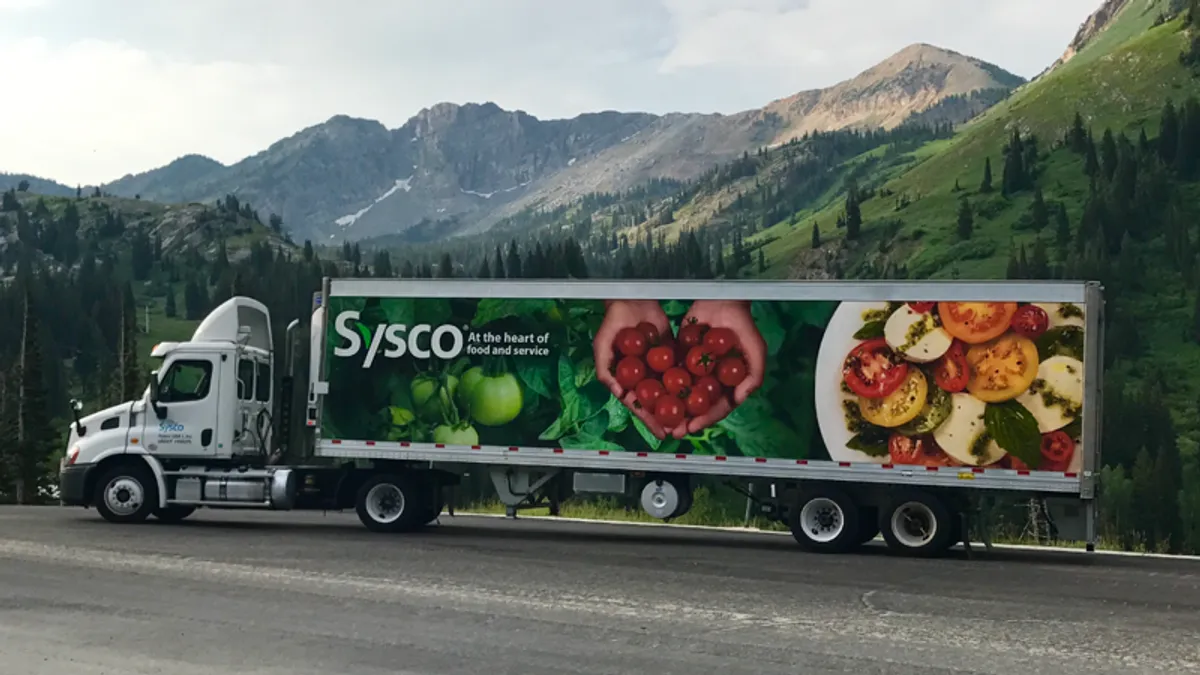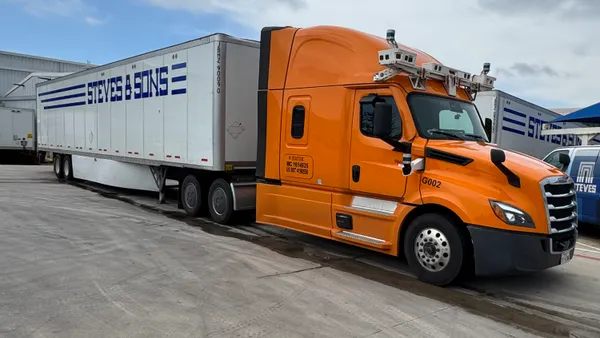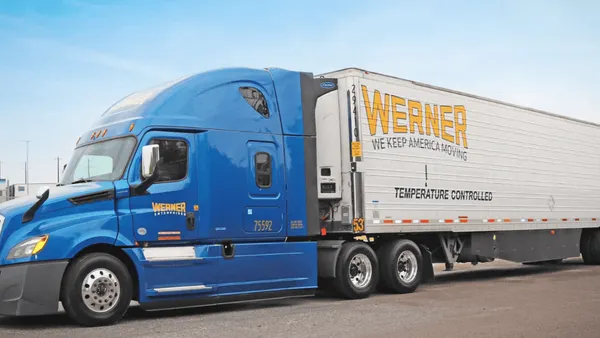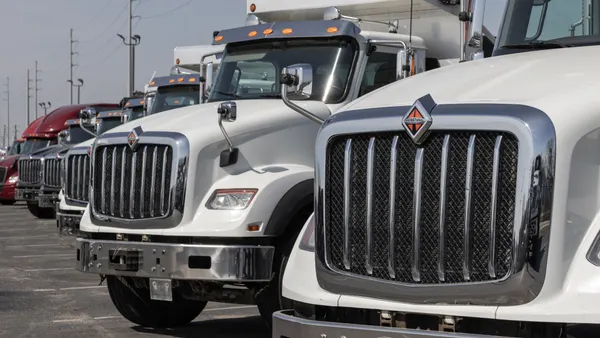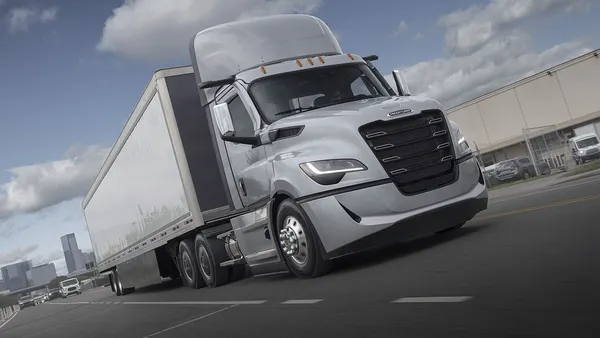Dive Brief:
- Sysco plans to electrify 35% of its U.S. tractor fleet by 2030, according to the company's 2021 Corporate Social Responsibility report. That's the equivalent of about 2,500 electric tractors, the company said in an email.
- Sysco has already conducted tests of the zero-emissions Freightliner eCascadia at its Bay Area operating site and will deploy its first group of electric trucks in Riverside, California, in its 2023 fiscal year.
- Scope 3 emissions are Sysco's "largest opportunity for impact," as they make up 98% of its total carbon footprint, according to the report. The majority of the company's emissions stem from food production and transportation between growers, suppliers and customers.
Food production largest driver of Sysco's indirect emissions
Dive Insight:
Scope 3 emissions, which are tied to what companies purchase throughout their supply chain tiers, account for more than 90% of total emissions for an average packaged food company, according to Rabobank. This disproportionate share has more companies within the food industry engaging with suppliers to reduce their carbon footprints.
"Our engagement will focus first on suppliers with the largest emissions contribution and then will shift toward smaller suppliers," Sysco said. "Since our supplier base is large and varied, each supplier requires a different level of engagement and support."
A company has more control over Scope 1 and 2 emissions, which is where Sysco's private fleet falls. To help curb those emissions, the company is prioritizing the electrification of its U.S. tractor fleet, which is expected to reduce its emissions and maintenance costs.
According to the company's report, the recent pilot of the Freightliner eCascadia was a success, as its drivers "enjoyed the [electric vehicle's] powerful, yet smooth and quiet ride."
Sysco said it will continue the Freightliner collaboration to make sure new EVs meet the unique transportation requirements for food distribution. It added that the industry lacks options for electric trailers with multi-temperature storage systems and long-distance electric tractor fleets that can meet its food safety and quality standards.
The company is rolling out efforts beyond fleet electrification to reduce its transportation emissions.
Sysco launched load-fill optimization capabilities to many of its regional distribution center lanes and some operating sites, which reduced the number of trucks used to stock its sites. In 2021, Sysco avoided 82 truckloads due to improved load-fill.
Sysco also leaned on intermodal and rail shipping, which provided it with "significant environmental and cost advantages," per the report. However, Sysco pared back its use of rail toward the end of the year and shifted to transportation modes with shorter lead times to maintain service levels.



